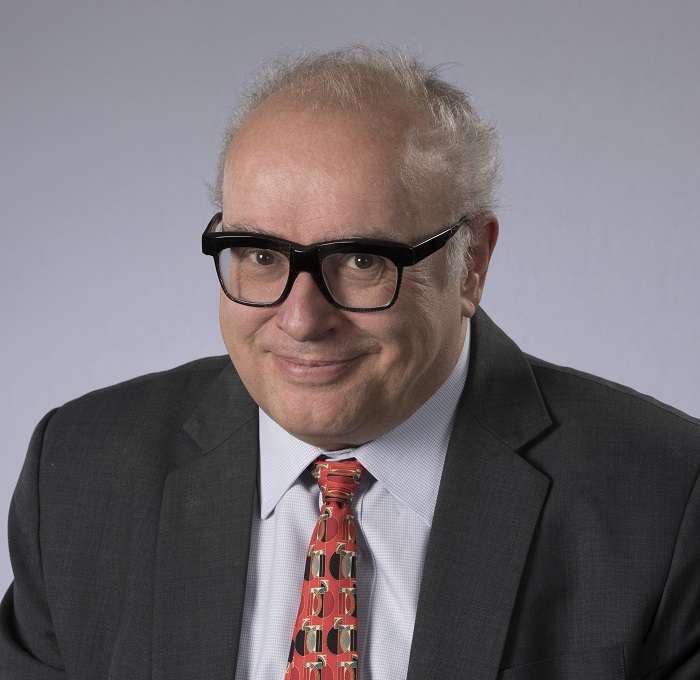CRISM Ontario: Effecting drug policy through a ‘less talk, more action’ philosophy

As one of Ontario’s leading drug policy experts, Dr. Jürgen Rehm believes that making a real, positive impact on drug policy starts with one thing: a willingness to try.
“If we work together as an experimental society, where we see drug policy through an empirically-based evaluation lens, it will guide us towards new policies and the more we will be successful in Canada in the long run,” said the University of Toronto professor and senior scientist with the Centre for Addiction and Mental Health’s (CAMH) Institute for Mental Health Policy Research and Campbell Family Mental Health Research Institute.
“That’s where I hope Canadian drug policy is headed: to be more of an experimental society. Often, we really do not know if ‘x’ or ‘y’ is the best solution. We know that, for example, naloxone kits do help. That is clear. That doesn't mean that we know the best way to distribute them. For a lot of other policies, we know less.”
“Since we don't know that much, we should evaluate a lot of our interventions and policies with an end date and say, 'Okay, for three years, we're going to try that out. And within those three years we’ll do a good evaluation. At the end we say 'Okay, this policy has helped us and should be adopted more generally,' or 'It didn't help us and these are the lessons we learned.’”
Power in numbers
Dr. Rehm heads up the Ontario node of the Canadian Research Initiative in Substance Matters (CRISM), a Canadian Institutes of Health Research (CIHR)-funded research network organized into five regional nodes. In addition to its participation in Canada-wide initiatives exploring critical issues like the toxic drug supply, CRISM Ontario also leads vital projects as an individual node. These have included assessments of naloxone distribution, an examination of engagement in treatment for opioid use disorder in correctional settings, and an independent evaluation of British Columbia’s three-year temporary decriminalization of certain illicit substances for personal use.
CRISM Ontario is an interdisciplinary team comprising hundreds of researchers, service providers, policy representatives and people with lived experience. Dr. Rehm is particularly proud of the community-based approach that the node has fostered.
“In Ontario, we have tried to widen the participation of everybody, including community groups. We have a system in which much of our funding is spent on projects proposed by the community and evaluated by a committee primarily from the community with a range of backgrounds,” he explained.
“We want projects driven by the community and subjected to an evaluation that is accepted by the community. This means projects are developed by groups like people who use drugs, by community activist organizations. It’s something we are very proud of to have these kinds of rules in the community so people can say, 'Okay, [CRISM is] helping us do things we consider important.’”
Catering to unique, diverse communities
Ontario is a particularly diverse province, with large populations in settings both urban and rural. CRISM Ontario is hosted in the heart of Toronto at CAMH, and while Canada’s largest city remains a key population with which to explore drug policy, it’s important to Dr. Rehm and his team that they take a whole-of-Ontario approach to their work.
“There are a number of issues which are different throughout the province,” he noted.
“The price of drugs is cheaper in the big cities, which is linked to some unique dynamics. In the northern parts of Ontario, there isn’t enough infrastructure to support people who use drugs: We don't have enough agencies, enough psychiatrists. That kind of support is missing.”
While CRISM Ontario already has an established relationship with the Thunderbird Partnership Foundation, a network of Indigenous leaders working in mental health and addictions, Dr. Rehm believes the upcoming development of CRISM’s Indigenous Engagement Platform will lead to even more of an impact on rural and diverse communities.
“Part of what we are doing to support Indigenous communities will be done more centrally. That's a good development because it means more money is available for those initiatives. And we hope that some of the engagement will spread out more into those smaller communities.”
A bright outlook
With a storied career focused on jurisdictions around the globe, Dr. Rehm remains optimistic about the direction national drug policy might take. He drew comparisons between Canada and some of the higher-population European countries he’s led research in.
“[Some have] more bureaucratic chains. Canada is more open, more willing to listen,” he said.
“It's not always perfect, but at least you have a chance: a chance to speak to the ministers, to come to decision-makers. You can try to impact them. It won’t always work, but at least you feel that there is a fluidity. There is a willingness, a certain openness to at least try to hear the other's argument and that is what I like about Canada.”
- Date modified: